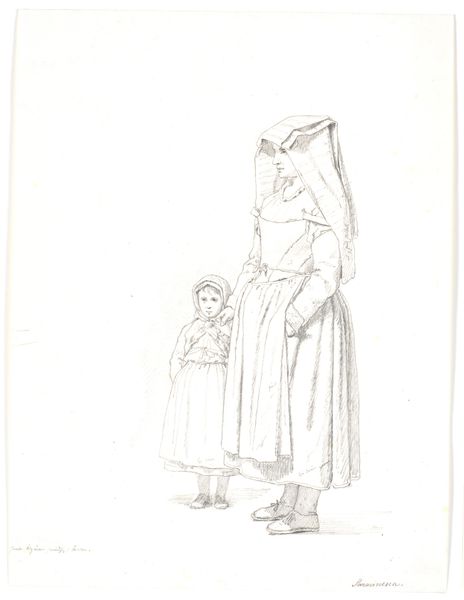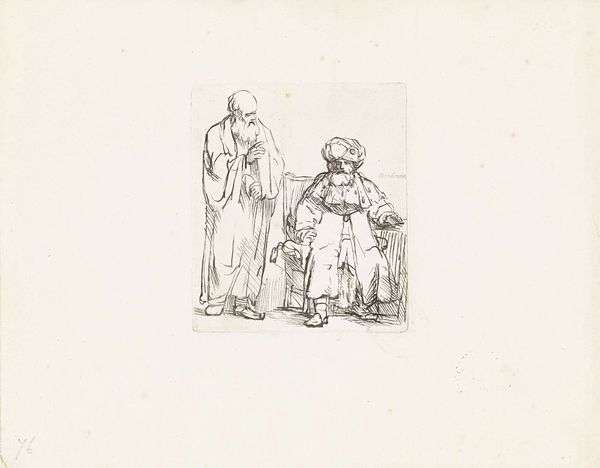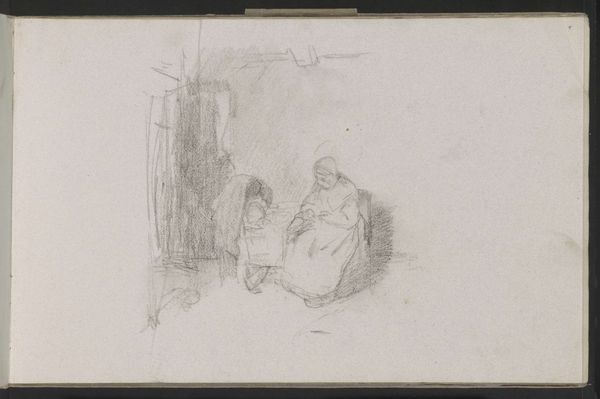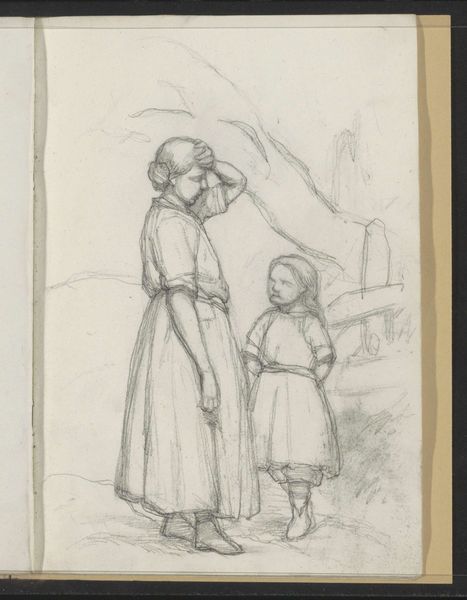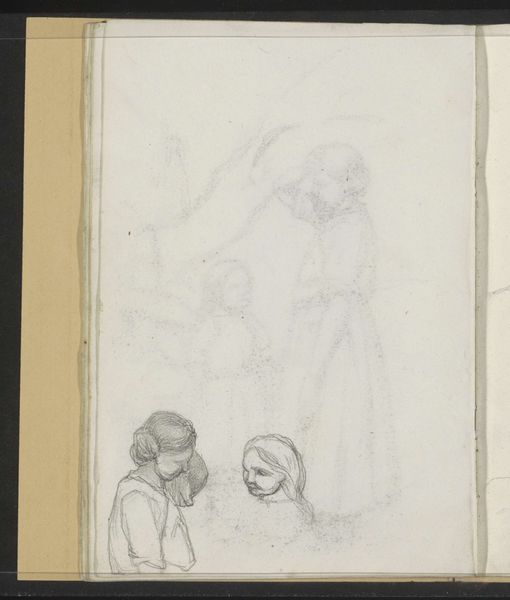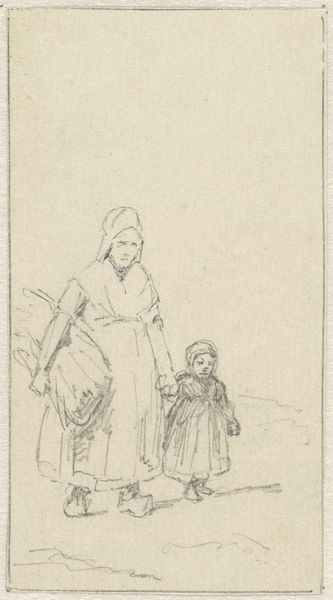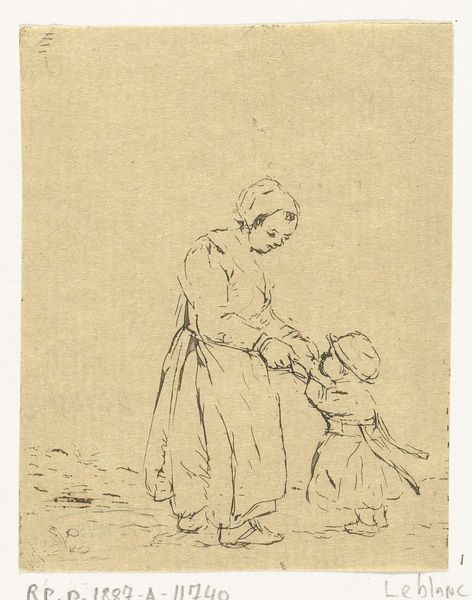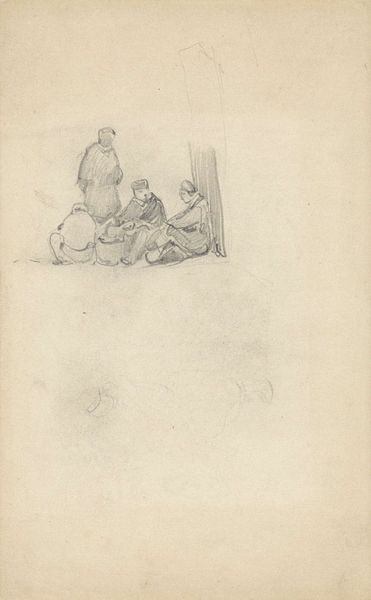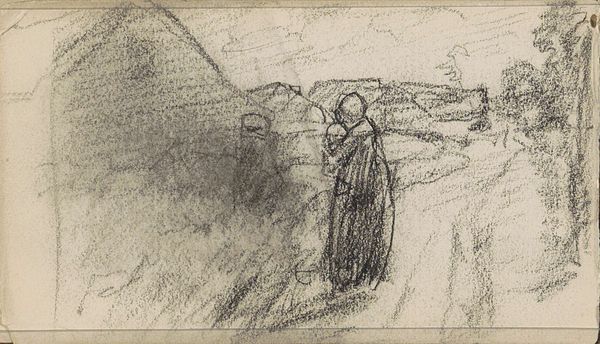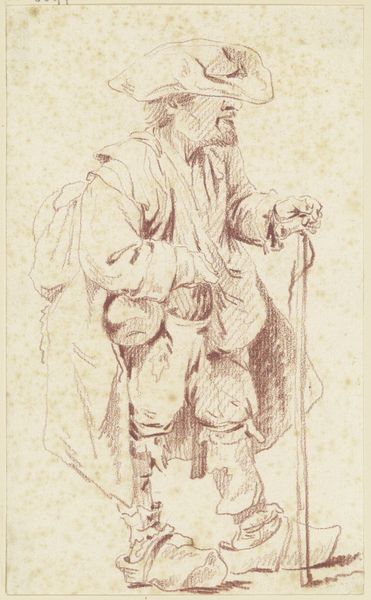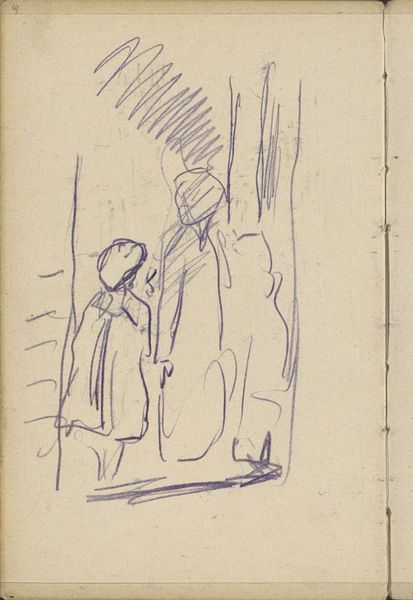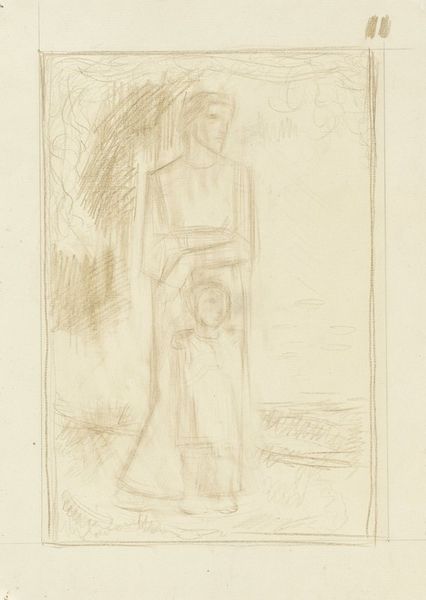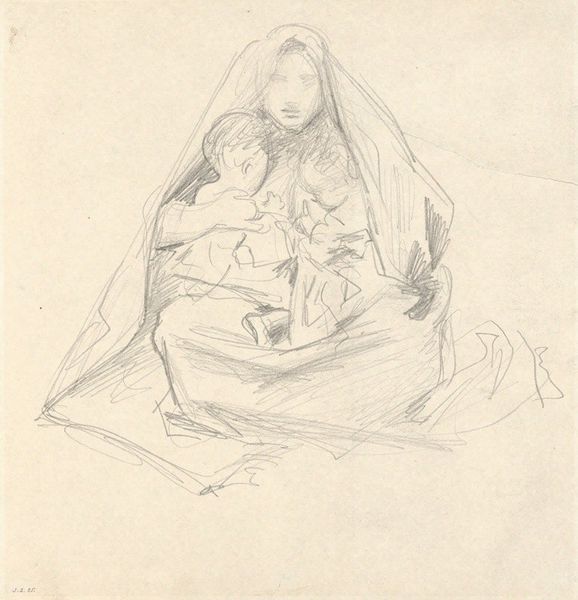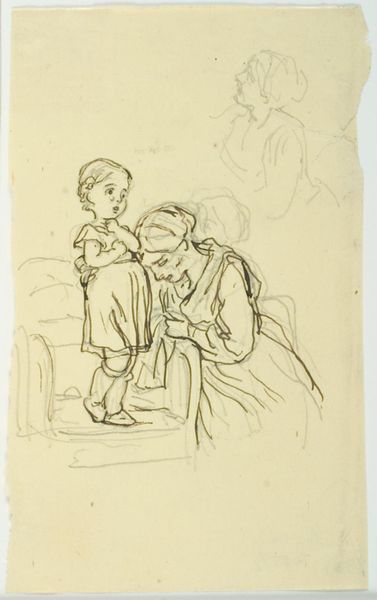
drawing, pencil
#
portrait
#
drawing
#
mother
#
figuration
#
pencil
#
genre-painting
Dimensions: height 363 mm, width 250 mm
Copyright: Rijks Museum: Open Domain
Curator: Jozef Israëls created this pencil drawing, "Standing Woman and Child," sometime between 1834 and 1911. It's currently held here at the Rijksmuseum. Editor: It strikes me immediately as being very quiet. The delicate lines almost blend into the paper itself. There's a real sense of intimacy, but also perhaps a subtle feeling of isolation. Curator: That feeling of quietude definitely stems from the limited tonal range. Look at how Israëls uses subtle hatching to define form and space. The composition focuses almost entirely on the two figures; the background is just suggested with the lightest of strokes. Editor: Absolutely, and the almost skeletal simplicity of the drawing feels poignant. We see this mother and child positioned against what appears to be a very minimal landscape; it could be anywhere. The figures are central and vulnerable within a wider social structure where poverty impacted domestic relationships. Curator: Notice how the minimal detail directs the viewer's focus to the relationship between the figures. The woman looks down, perhaps protectively, while the child seems to clutch something small in their hands. It becomes more about suggestion and less about strict visual depiction. Editor: It is as if Israëls deliberately removes extraneous details so that the viewer is forced to confront this essential human bond in its most raw state. What are the unspoken burdens of motherhood conveyed through posture alone? It’s powerful commentary for the period in the Netherlands. Curator: His deft manipulation of light and shadow creates a tender and intimate atmosphere—remarkable considering the sparse medium. The subtlety pushes the boundary between presence and absence. Editor: This drawing functions not just as a depiction of figures but also as a mirror reflecting universal aspects of societal struggles endured by marginalized figures throughout history. Curator: A masterful study in minimalism, creating a window into humanity with remarkable economy of means. Editor: Yes, an unassuming yet forceful invitation into deeper questions concerning care and representation.
Comments
No comments
Be the first to comment and join the conversation on the ultimate creative platform.
